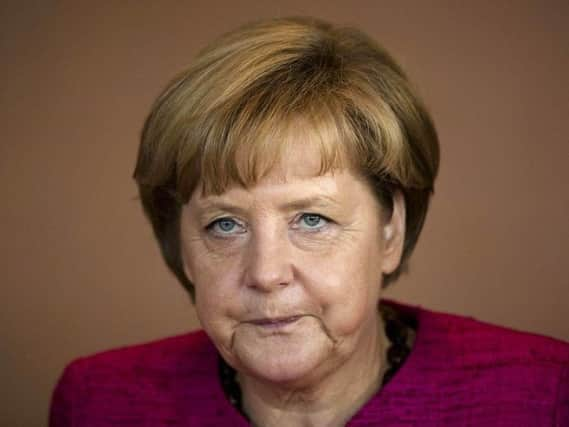Election is the least of Merkel's problems


If the polls are to be believed Angela Merkel, the leading figure in German politics for more than a decade, is on track for a fourth term of office as Chancellor, although there remains a large element of uncertainty as more than a third of the electorate are still undecided who to vote for.
Whatever the result this weekend, don’t expect a quick resolution. The German electoral system is designed to ensure that no one party is dominant (for obvious historical reasons). There are likely to be days or even weeks of negotiations as Merkel stitches together some kind of ‘grand coalition’.
Advertisement
Hide AdAdvertisement
Hide AdThe strong challenge expected from the centre left’s Martin Schulz, who quit the Presidency of the European Parliament to stand against Merkel, has largely failed to materialise. He is languishing some 14 points behind her in the polls.
In contrast the anti-Islamist and Euro-sceptic party, Alternative for Germany, has reached 10 per cent in the polls and is expected to enter the German parliament, the Bundestag, for the first time.
It is not difficult to understand why. Since Merkel’s ill-fated decision two years ago to throw open Europe’s borders to an estimated 1.4 million refugees from the jihadi hotspots of the Middle East – without a single security check – Germany has suffered an unprecedented increase in violent crime and waves of terror attacks.
At first, the country’s establishment sought to keep a lid on this simply by lying about the scale and nature of the crime wave. For example, the police desperately tried to cover up the mass sex assaults in Cologne and other cities on New Year’s Eve 2015 when more than 1,200 women were assaulted.
Advertisement
Hide AdAdvertisement
Hide AdBut in April this year the interior minister, Thomas de Maizière, was forced to admit there has been an astonishing increase of 52.7 per cent in crimes committed by migrants in a single year.
In 2016 cases of murder and manslaughter increased by 14.3 per cent, sex crimes by 12.7 per cent, aggravated assaults by 9.9 per cent and drug offences by 7.1 per cent. Non-German residents committed 2,512 rapes in 2016, an average of almost seven per day, and more than 11,000 robberies and more than 56,000 aggravated assaults.
Mr de Maizière said: “The proportion of foreign suspects, and migrants in particular, is higher than the average for the general population. This cannot be sugar-coated.
“There is an overall rise in disrespect, violence and hate. Those who commit serious offences here forfeit their right to stay here.”
Advertisement
Hide AdAdvertisement
Hide AdIn one notorious case, an Afghan refugee raped and murdered the 19-year-old daughter of senior EU official in the university city of Freiburg last October. He had previously attempted to murder a 20-year-old woman on the Greek island of Corfu by throwing her off a cliff.
But security checks were so lax – in fact non-existent – he was allowed to enter Germany.
It is not just general crime that is causing concern in Germany, but specifically terror attacks. There have been suicide bombings, axe and knife incidents since Merkel opened the borders, culminating last December in an attack in Berlin in which a failed asylum seeker drove a truck into a crowded Christmas market murdering 12 people.
Merkel’s response to this is to join with the European Commission to bully eastern European countries such as Poland and Hungary to accept “their share” of the migrants she invited into Germany.
Advertisement
Hide AdAdvertisement
Hide AdThe fact Merkel is riding so high in the polls despite this is testament to her skills as a politician. Perhaps the German people have simply decided to cling to the skirt of the woman affectionately known as “mutti” (mummy). But if she does win it is a problem she will have to deal with, and I suspect that simply trying to shift it eastwards isn’t going to work.
She will also have to deal with the huge whole blasted in the EU’s budget by Brexit and find a way of putting Jean-Claude Juncker back in his box before he irretrievably damages trade relations between German manufacturers and a newly-independent UK.